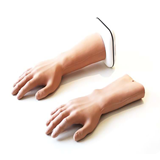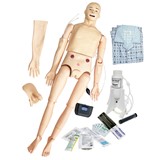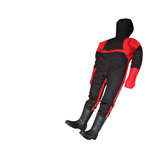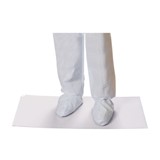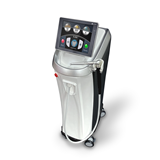Opening or upgrading your clinic? This guide covers TGA compliance, laser classifications, safety training, and licensing laws to keep your cosmetic laser services legal and insured.
Key takeaways
- TGA registration is mandatory — All laser hair removal machines sold or used in Australia must be included in the Australian Register of Therapeutic Goods (ARTG) if they are considered medical devices.
- Class 3B and Class 4 lasers are regulated — These are the most common types used in cosmetic clinics and must meet stringent safety and training requirements.
- Operator licensing and training vary by state — Queensland and Western Australia have mandatory licensing requirements, while other states rely on workplace health and safety laws.
- Laser training must include theory and practical — Nationally recognised units such as “Use laser for hair reduction” are often required.
- Clinics can face penalties of $26,000+ for non-compliance with laser safety and device regulations.
- Protect your business — Choose TGA-approved suppliers, invest in accredited training, and ensure compliance with state laws.
Introduction: Why laser safety and compliance matter in Australia
Laser hair removal machines are a staple in Australian cosmetic clinics, but they come with high regulatory expectations. Using non-compliant devices or untrained operators not only risks injury to clients — it can also lead to fines, lawsuits, or even forced business closure.
Whether you're opening a new clinic or upgrading your devices, understanding Australia’s laser safety and compliance landscape is essential. This guide outlines how to identify TGA-approved devices, meet national and state regulations, and ensure all staff are trained to legal and professional standards.
Let’s walk through what you need to know to buy and operate a laser hair removal machine in Australia with confidence.
What is the TGA and why does it matter for cosmetic lasers?
The Therapeutic Goods Administration (TGA) is the regulatory body responsible for assessing the safety, quality, and performance of medical devices in Australia. Certain cosmetic lasers — especially those used for hair reduction, tattoo removal, or skin treatments — may fall under this classification.
What does TGA approval mean?
If a laser device is considered a medical device under Australian law, it must be:
- Included in the Australian Register of Therapeutic Goods (ARTG)
- Classified correctly (e.g. Class 2B or Class 3 depending on the laser's application)
- Compliant with Essential Principles under the Therapeutic Goods Act 1989
Not all cosmetic lasers are classified as medical devices — but most high-powered Class 3B and Class 4 machines are, especially if used in skin treatments or semi-permanent hair removal.
Penalties for non-compliance
Operating a laser hair removal machine without meeting Australia’s regulatory standards can result in serious financial and legal consequences. Both federal and state authorities impose strict enforcement for non-compliance.
TGA penalties (federal level)
The Therapeutic Goods Administration (TGA) regulates the supply of medical-grade cosmetic lasers in Australia. Using or supplying unapproved devices can lead to:
- Civil penalties of up to $1.11 million for companies
- Up to $222,000 for individuals involved in breaches
(Figures correct as of 2024, under the Therapeutic Goods Act 1989)
You must ensure the device is listed on the Australian Register of Therapeutic Goods (ARTG) and compliant with safety standards such as AS/NZS 4173:2018.
State-level enforcement and risks
In addition to federal laws, Australian states and territories have their own laser and radiation safety requirements. Failing to comply can result in:
- Fines for unlicensed laser operation
- Forced closure of treatment rooms or entire clinics
- Suspension or cancellation of operator licences
- Legal action for patient injury or negligence
For example, under the NSW Radiation Control Act 1990, operators using Class 3B or 4 lasers without a valid licence can face prosecution, even if the equipment itself is TGA-approved.
Understanding laser classifications: What machines are covered?
The two main types of lasers used in hair removal are:
Class 3B lasers:
- Power output between 5 mW and 500 mW
- May cause injury to eyes or skin with direct or scattered exposure
- Common in skin rejuvenation and light-based therapies
Class 4 lasers:
- Power output above 500 mW
- Can cause serious burns or eye damage
- Used in tattoo removal, hair removal, and deeper skin treatments
Both classes are subject to higher regulation in Australia, particularly when used in a cosmetic-medical context.
What to look for in a TGA-compliant laser hair removal machine
When buying or leasing a laser machine, ensure the following:
- ARTG listing — Ask the supplier for the ARTG inclusion number and cross-check it on the TGA register.
- Correct classification — The device must be classified according to its intended use.
- Labelled with sponsor details — The sponsor (importer/manufacturer) must be listed on the ARTG.
- Full documentation — Instructions, performance data, and user manuals must be available.
Tip: Always ask the supplier whether the device is for cosmetic use only or registered for medical use. This affects training and insurance.
State-based regulations: What your clinic must comply with
Australia has no unified national licensing law for laser operation — it varies by state. Below is a breakdown of current requirements as of 2024:
Queensland (QLD)
- Radiation Health licence required to operate Class 4 lasers
- Operators must complete a recognised laser safety training course
- Clinics must register their laser equipment
Western Australia (WA)
- Licensing is handled by Radiation Health WA
- Operators need a user licence
- Training must be completed at an approved training organisation
New South Wales (NSW), Victoria (VIC), South Australia (SA), Tasmania (TAS), Northern Territory (NT), and ACT
- No mandatory licence
- However, clinics must meet workplace safety and duty of care obligations
- Training is strongly recommended and often required by insurers
What training do laser operators need in Australia?
Whether legally required or not, comprehensive laser safety training is vital for risk mitigation and professionalism.
Nationally recognised training:
Many registered training organisations (RTOs) offer units such as:
- SHBBHRS007 – Provide laser hair reduction treatments
- Radiation Safety Officer (RSO) Certificate
Training should include:
- Laser physics and skin interactions
- Classification of lasers
- Risk management and incident response
- Practical operation of specific devices
- Infection control and hygiene procedures
Some insurers and councils may also require proof of competency or refresher training.
Insurance and risk management for cosmetic laser clinics
Proper compliance also affects your ability to get insured. Here’s what you need:
- Public liability insurance that covers laser services
- Professional indemnity insurance for all operators
- Evidence of TGA compliance and registered equipment
- Staff training records and standard operating procedures (SOPs)
- Consent forms and pre-treatment screening processes
Tip: Insurance premiums are lower when you can prove your clinic is compliant and your staff are certified.
Smart steps to ensure laser safety and compliance when purchasing
- Only buy from TGA-registered suppliers — Ask for ARTG inclusion.
- Document everything — Keep all receipts, certificates, and serial numbers.
- Conduct a laser safety audit — Identify gaps in training, equipment, and SOPs.
- Provide in-house training refreshers — Keep your team updated.
- Label and maintain machines properly — Ensure warning signs, interlocks, and calibration.
FAQs: Laser safety & compliance in Australia
Are all laser hair removal machines in Australia regulated by the TGA?
Not all. Only devices considered "medical devices" fall under TGA regulation. However, many Class 3B and Class 4 machines used for cosmetic purposes still require ARTG listing due to their risk level.
Do I need a licence to operate a laser hair removal machine?
It depends on your state. Queensland and Western Australia require licences. Other states currently do not but expect operators to follow workplace safety laws.
What is the penalty for using a non-compliant cosmetic laser?
Penalties can exceed $26,000 for individuals and go higher for clinics and corporations. The TGA can also issue recalls and seize non-compliant equipment.
How do I check if a laser device is TGA-approved?
Use the ARTG database on the TGA website and search by brand, device name, or sponsor.
What kind of training do I need to operate a cosmetic laser?
At minimum, a laser safety course covering laser physics, skin safety, infection control, and practical operation. Nationally recognised units such as SHBBHRS007 are recommended.
Is imported laser equipment from overseas automatically compliant?
No. Even if approved overseas (e.g. FDA in the USA), the device must be assessed and approved for use in Australia by the TGA.
Can I rent a laser device that isn’t TGA-registered?
No. Whether buying or renting, it’s illegal to use a device that requires TGA registration and isn’t listed.
Final thoughts: Compliance protects your business and reputation
In Australia’s booming cosmetic industry, laser hair removal machines offer great returns — but only if they’re used safely and legally. TGA compliance, proper training, and state licensing are essential not just for legal reasons but for protecting your clients and your brand.
By choosing ARTG-listed devices and accredited training providers, you avoid regulatory risks and boost your clinic’s credibility. Don’t cut corners on compliance — it’s one of the smartest investments you can make in your cosmetic business.




